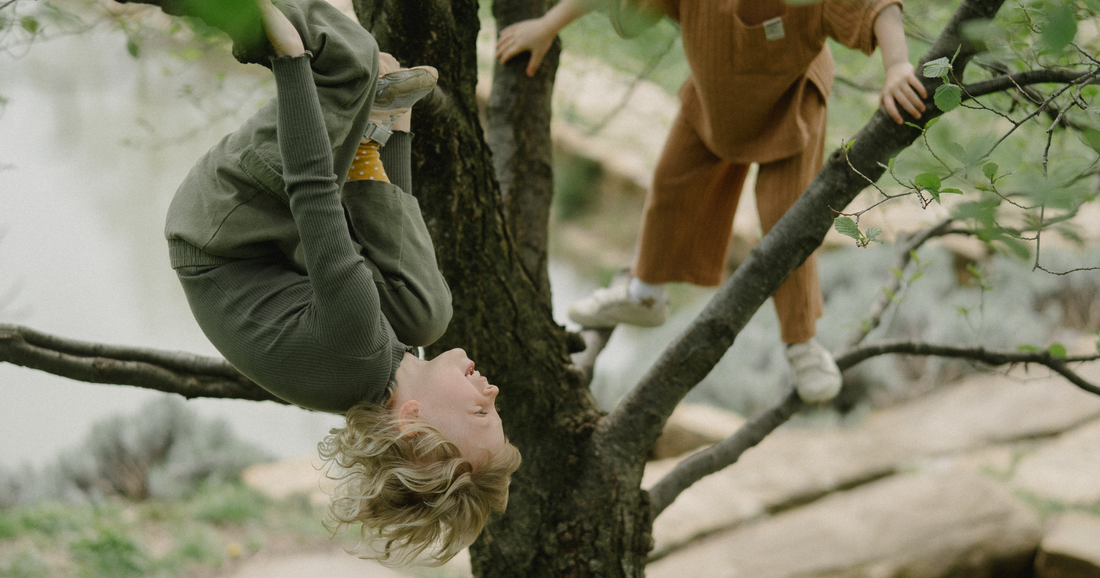
10 Ways to Get Your Kids Outdoors (Without It Feeling Like a Chore)
We know fresh air is good for kids. In fact, it's essential for brain development.
Outdoor time isn't just fun, it's an activity that builds a strong foundation for cognitive growth. From improving focus to reducing stress, spending time out in nature actively supports children's curious minds.
When screens are so stimulating and exciting, it can be hard to persuade them away. But an escape to nature is always appreciated once you’re out there together. Whether it's a simple walk in the woods spotting creepy crawlies, role-playing at the park, or even getting your hands dirty gardening at home, getting stuck into outdoor activities will help build strong neural connections and emotional resilience.
The Brain Benefits of Outdoor Play
Research shows that time outside improves attention span, executive function, and sensory integration.
Exposure to natural light also supports better sleep, which is crucial for memory and emotional regulation. And when kids move their bodies outdoors, it boosts blood flow and oxygen to the brain, enhancing focus, creativity, and learning capacity.
Spending time in green spaces has been shown to reduce symptoms of anxiety and ADHD in children. One study found that just 20 minutes in nature can significantly lower cortisol, the stress hormone, helping kids feel calmer and more grounded.
Outdoor Ideas to Get You Started
Not every child jumps at the idea of outdoor play, but these 10 creative ideas will help make time in nature feel like an adventure, not a chore.
1. Start a Nature Collection
Kids love collecting things (especially gross things!) and creating a collection gives them a purpose when outdoors. Picking up pinecones, feathers, or interesting leaves builds observation skills and sparks curiosity. If you can get them sorting and categorising their finds, you’ll also be supporting early STEM learning too!
2. Create a “Yes Space” Outside
Give them a small section of garden where they can dig, build, or get messy with no rules and no micromanaging (you can do it!). We’re looking to encourage experimentation and self-direction. Digging helps motor skill development, and relieves pent-up tension from being indoors doing homework.
3. Go on a Photo Safari
Let them borrow your phone or camera (maybe a less precious old one!) to hunt for textures, colours, bugs, or shadows. You could let them explore freely, or give them a bingo card or treasure hunt clues for added brain teasing. We’re engaging observation, visual skills and focus, and encouraging mindfulness and connection to nature.
4. Set Up an Outdoor Snack Picnic
Eating outdoors turns an ordinary daily activity into a highlight of the day. Outdoor meals improve digestion and are often more relaxing for fidgety kids.
5. Make a Natural Treasure Hunt
Find interesting natural materials that catch their eye. A funny shaped stick, a shiny feather, or an unusually patterned rock. Once you’ve collected a few, have them hide them and create a treasure map. This encourages problem-solving, spatial awareness, and natural curiosity.
6. Introduce Outdoor Crafting
Use mud, leaves, sticks, stones, flowers and anything you can find to create nature art, sculptures, mobiles, and inventions. Crafting outdoors lowers stress, builds fine motor skills, and connects creativity with nature. If they show a keen interest in woodland skills, consider exploring crafting courses.
7. Do the 'Sit Spot' Challenge
Invite your child to sit in one place for 5 minutes and record all the sounds, sights, and smells. This relaxing activity builds mindfulness, sensory integration, and calm focus. If you’re noticing overstimulation, this is an ideal antidote.
8. Plan a Mini “Survival” Expedition
Create simple challenges like building a den or ‘mapping’ the area. Role-playing survival skills encourages critical thinking, leadership, and teamwork.
9. Get Into Gardening
Give them a plant or small patch of soil to grow something, even in a pot. Gardening teaches patience and responsibility. Studies show gardening improves mood and reduces anxiety in children.
10. Create an Outdoor Routine
Normalise activities like a walk after dinner or walking to school through the park. Regular outdoor exposure improves circadian rhythms (better sleep), strengthens immunity, and boosts serotonin and dopamine levels.
